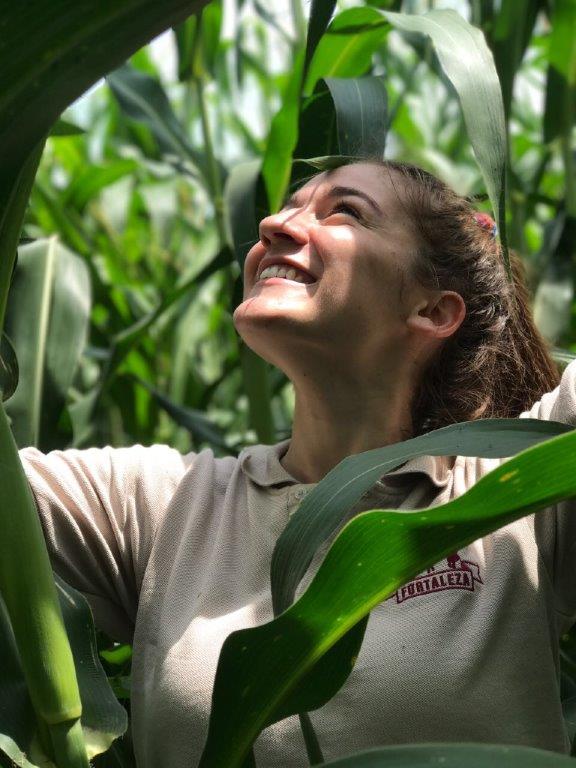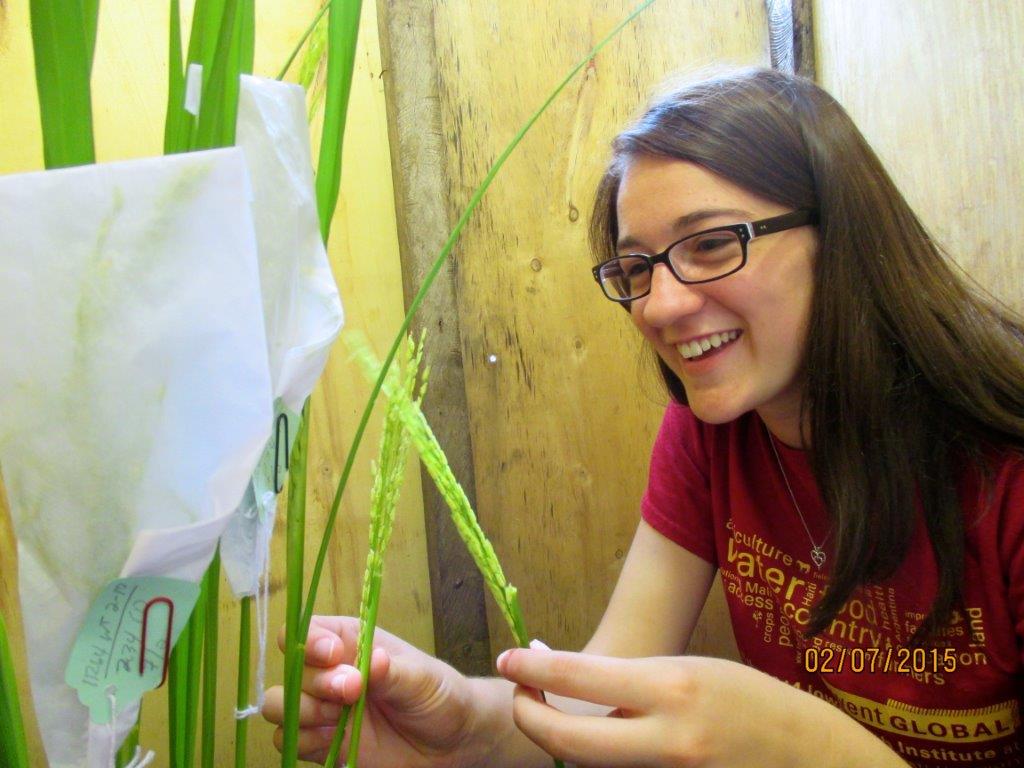Meet the Breeder: Katelyn Fritz
- On March 13, 2019

Name:
Katelyn Fritz
School:
Iowa State University
Major:
Agronomy and Global Resource System

What type of plant breeder are you (or are you studying to be)?
Between conventional and molecular breeding I currently don’t have a preference. What I do know is that I would like to work in biofortification of staple crops as a step in international development.
How long have you been doing it?
I am in my third year of studying at Iowa State University, but I have known that I wanted to be a breeder since my sophomore year in high school and realized I wanted to work in biofortification the summer before my freshman year of college.
Why did you choose this career (or major, if student)?
I chose this field because I love science, plants and all that can be done with them fascinate me, but I also have a passion for international development. Biofortification is my way to combine the two.
How did you get your start?
Fall of 2012 I was in my sophomore year of high school and my mom’s boss Mr. Larry Zimplemann gave her two tickets to the World Food Prize (WFP) and insisted that she take me so I could learn a little more about this amazing event that is held each year in Des Moines. She and I complied, but I was less than eager to sit through the ceremony never having heard of anyone that was being spoken of, including Dr. Norman E. Borlaug, my now idol. Towards the beginning of the ceremony they introduced the Borlaug Scholars and as they were doing so my mom looked at me and simply stated, “that could be you.” At the time I brushed it off thinking that they were much more intelligent than I or ahead of where I was at the time but it always intrigued me and I started looking into how I could become involved. That night stuck with me and a year and a half later I wrote a paper on the governmental system in Nepal and attended the WFPs Iowa Youth Institute as an application to attend the Global Youth Institute. To my amazement I was selected, and at that moment I became a Borlaug Scholar just as my mom had said I could.
Once I had attended the Global Youth Institute I was able to apply for the Borlaug-Ruan International Internship through the WFP. Again to my humbled amazement I was selected to spend 8 weeks in Los Baños, Philippines at the International Rice Research Institute (IRRI) the summer of 2015.
In the midst of all of this, just three months before I left for the Philippines, I was able to take a trip to Guatemala to do a wheelchair distribution. While there the group I was with saw the disabilities and saw the wheelchairs as the only solution but I saw deeper. I saw what I had been reading about for years, specifically at the time in the book 40 Chances by Warren Buffet, and for the first time saw the effects of micronutrient deficiencies first hand.
I then left in June for the Philippines and while there I was able to rotate through six laboratories all focusing on high zinc rice to get a good view on the process international research facilities take in developing biofortified crops. This experience showed me a way that I could use my interest in international development and crop sciences together and thus set my path towards a career in biofortification.
Recently (May-December, 2017) I was able to then bring everything full circle and return to Guatemala to intern with a small NGO, Semilla Nueva, that works to sustainably overcome chronic malnutrition in Guatemala through maize biofortified with higher levels of zinc, tryptophan and lysine. Doing so brought me back to the first experience just two and a half years prior and see how far I had come in that time to work towards my goal.
What challenges are you working to address through your work?
I want to use plant breeding as a sustainable solution to chronic malnutrition and therefore a step towards international development.
What plant variety have you developed (or are you working on developing) that you think is the most interesting or important?
The summer of 2015 while I was at IRRI I was working with high zinc rice and then my time in Guatemala last year I was working with QPM high zinc maize. In the end I’m not sure what crop I will focus on, but I would like it to be one that humans currently get a majority of their calories from.
What is the coolest thing about your job (or field of study)?
To me the coolest thing is the endless possibilities we have as for traits that we can introduce or silence in a crop. Through science we are able to change the plant to fit our needs whether it be to gain resistance towards pests or to be more nutritious to the consumer and there is nothing more interesting than using what we have to better fit our needs.
What I think is so neat about biofortification is that it’s a solution we can currently achieve and we can use it to change diets in a much quicker timeline than we would be able to with a lot of other solutions.

